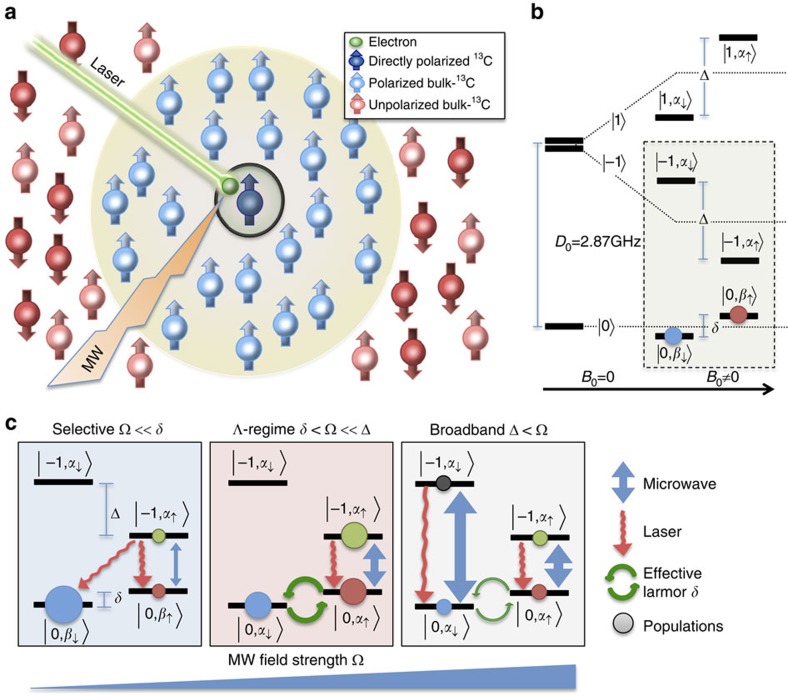Figure 1. MW-driven 13C polarization derived from optically pumped nitrogen-vacancy centres.
(a) Spin-1 NV electronic defect strongly coupled to a 13C nucleus (black circle), irradiated simultaneously by MW (orange lightning bolt) and laser fields (green beam). The optically pumped NV-spin (green sphere) transfers its polarization to the coupled nucleus (dark blue sphere) and eventually to the remaining 13C (the bulk) by interactions within a dipolar spin network (light blue spheres). The red spheres are unpolarized nuclei. (b) Energy-level diagram of the electron defect, hyperfine coupled to a 13C in presence of a potential magnetic field B0 (without MW fields). The dashed box shows the energy levels addressed, and stresses an initial state containing equal populations on the lower  ,
,  eigenstates after optical pumping. (c) Spin dynamical regimes determined by the relation between the MW power and the energy splittings. The solid black lines only represent the eigenstates
eigenstates after optical pumping. (c) Spin dynamical regimes determined by the relation between the MW power and the energy splittings. The solid black lines only represent the eigenstates  ,
,  ,
,  and
and  of the system in the selective regime; in the remaining cases these lines represent states
of the system in the selective regime; in the remaining cases these lines represent states  ,
,  ,
,  and
and  that are relevant for the MW selection rules, but where
that are relevant for the MW selection rules, but where  and
and  are linear superpositions of the eigenstates
are linear superpositions of the eigenstates  and
and  . Blue vertical arrows represent the MW excitation on resonance with the transition
. Blue vertical arrows represent the MW excitation on resonance with the transition  , circular green arrows represent an effective Larmor precession with frequency δ, while curly red arrows represent a laser-induced relaxation-like process conserving the nuclear spin state but driving the incoherent
, circular green arrows represent an effective Larmor precession with frequency δ, while curly red arrows represent a laser-induced relaxation-like process conserving the nuclear spin state but driving the incoherent  optical pumping52. The filled and coloured circles schematize the populations of each state resulting from these dynamics. Although not explicitly shown in these energy-level diagrams, the electronic and nuclear spins involved in these manifolds are also coupled by dipole–dipole interactions to the 13C ensemble via a spin-coupling network, enabling further polarization transfers to the bulk (a).
optical pumping52. The filled and coloured circles schematize the populations of each state resulting from these dynamics. Although not explicitly shown in these energy-level diagrams, the electronic and nuclear spins involved in these manifolds are also coupled by dipole–dipole interactions to the 13C ensemble via a spin-coupling network, enabling further polarization transfers to the bulk (a).

